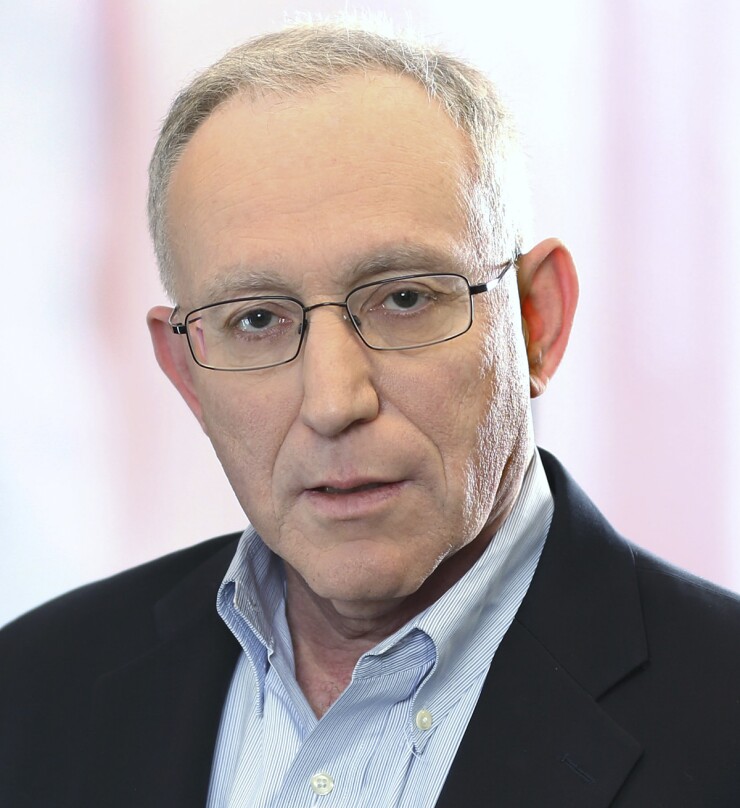Some muni market advocates have growing concerns that COVID-19 is limiting their ability to push important muni bond initiatives on Capitol Hill and elsewhere.
Congress is still open with staffers and lawmakers present, but those offices could decide to minimize or ban face-to-face meetings as virus concerns grow, said Chuck Samuels, general counsel to the National Association of Health and Educational Facilities Finance Authorities.
"Politically the Congress is going to want to hold on, but frankly, I think it is inevitable restrictions will go into effect," Samuels said.
This week, lawmakers such including Sen. Ted Cruz, R-Texas, self-quarantined after coming in contact with a conference attendee who tested positive for the virus. The Securities and Exchange Commission postponed a municipal disclosure conference Tuesday and asked its D.C. employees to work from home due to COVID-19.
The SEC said it would be holding a smaller meeting for those that had traveled for it. However, once the SEC instituted work from home, that meeting was canceled.
COVID-19, an illness caused by a member of the coronavirus family, has spread rapidly globally, affecting economic markets and infecting over 900 people in the U.S.
The virus will cause lobbyists and lawmakers to do workarounds which will create or accelerate patterns of virtual advocacy, Samuels said. Though that kind of advocacy is cheaper and easier, there are negative effects.

“What you lose is the intensity and personal factor of relationship building and showing that you care enough to show up,” Samuels said.
The virus also comes at a time when muni market advocates are pushing for muni provisions in infrastructure bills such as a direct-pay bond program and the restoration of tax-exempt advance refunding, among other goals. An infrastructure bill already has a short window to push through Congress before elections kick up in the fall.
“Does this mean that we’re going to lose a precious two to three months and no legislation will move at all in a time where it was barely moving anyways?” Samuels said.
Some events have moved forward including a well-attended infrastructure roundtable earlier this month hosted by the Bond Dealers of America and the Public Finance Network, where Rep. Steve Stivers, R-Ohio, made an appearance.
Brett Bolton, vice president of Bond Dealers of America, said he hasn’t seen the virus impact advocacy efforts yet.
“I’ve yet to see an impact,” Bolton said. “We’re going to remain undeterred and continue our advocacy efforts on Capitol Hill.”
The American Securities Association said their advocacy efforts have been unchanged.
Talk has circled around a possible stimulus plan as a way to push municipal bond provisions. President Donald Trump began those conversations with lawmakers on Tuesday.
The Government Finance Officers Association has reached out to the Senate Finance Committee to find ways to put muni bond provisions into a stimulus bill. Other groups have also reached out to House Speaker Nancy Pelosi’s office and the House Ways and Means Committee to do the same.
GFOA wants to make sure both sides understand that certain bond provisions such as advance refunding and expanding limits on bank- qualified debt can stimulate the economy, said Emily Brock, director of GFOA’s federal liaison center.
Brock emphasized that if direct-pay bonds were included, those subsidies would need to be protected from sequestration. Federal subsidy payments made to issuers of direct-pay bonds have been cut under sequestration over the years.
Brock had not seen any changes in communicating with lawmakers and said people were still on the Hill.
“It’s quiet in the hallways, but that means we have even better access and get a chance to chat with staff, which is good,” Brock said.
As for the SEC, Brock said she’s kept up with the SEC's Office of Municipal Securities despite working from home.
“A face to face is always a great thing, so we look forward to when we can have that again,” Brock said. “We don’t want to exacerbate a risk so we appreciate the privilege of reaching out to them and getting immediate responses.”





